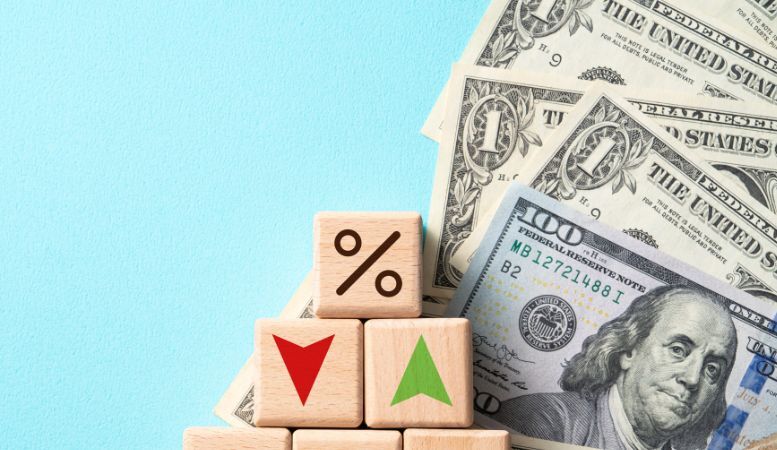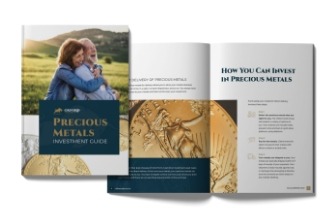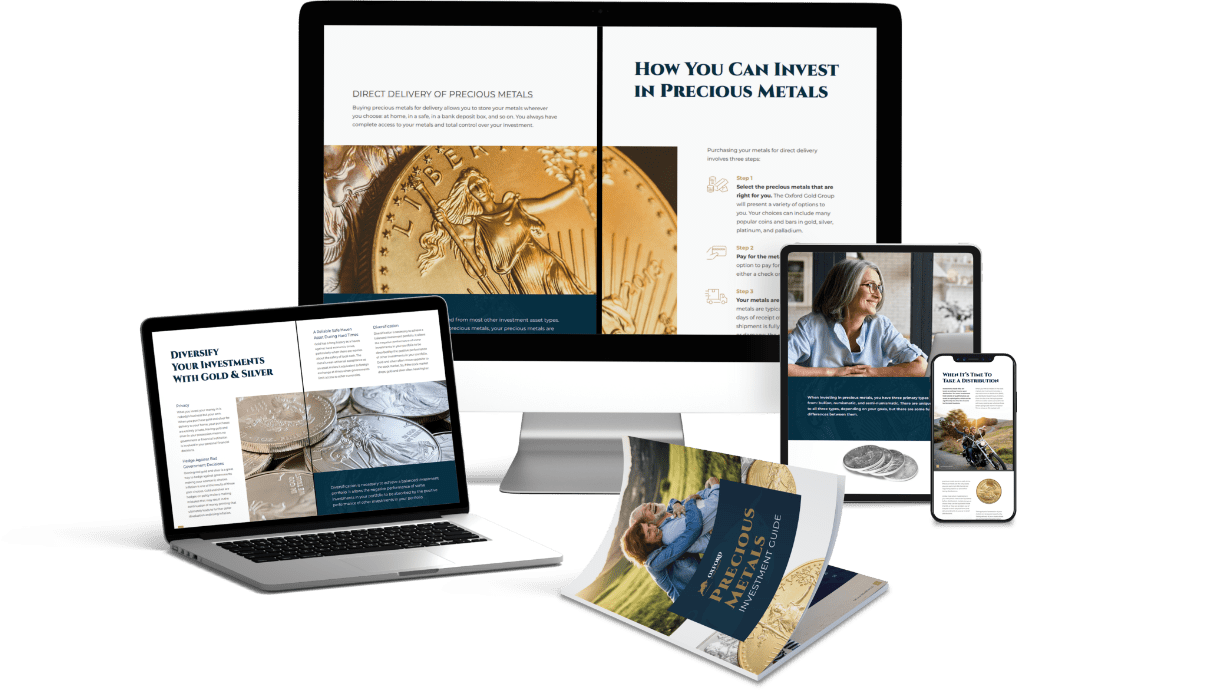Table of Contents
Gold symbolizes wealth and status worldwide, has been prized by both ancient societies and modern economies and has maintained its value over thousands of years.
Unlike fiat paper currencies, it is powerfully resilient against the forces that affect other forms of cash: economic depressions, geopolitical tensions, and even global pandemics like COVID-19. While gold is unlikely to earn you a quick buck, it can help you diversify your holdings and make a profit over time.
So, how does investing in gold work in the long run? Here, we look at the historical performance of gold, the advantages and disadvantages of choosing it for your portfolio, and how you can make an investment in gold work for you.
Gold’s Performance Through History
As far back as 1500 B.C., ancient civilizations used gold as the standard exchange medium for international trade. While the metal has remained valuable since then, it has also experienced regular price fluctuations — sometimes significant ones. Gold prices rise and fall based on geopolitical tensions, supply and demand, inflation and deflation, and mining and refining costs.
For example, as often happens during times of uncertainty, the Great Depression sparked a demand for gold, with the price per ounce rising 67%. Prices jumped during the Great Recession of 2008-2009 and again during the COVID-19 pandemic, which saw an increase in value of 25%.
On the flip side, the year 1970 saw a century-long low in gold prices. However, only a decade later, 1980 saw an all-time high amidst soaring inflation and rising interest rates. Since the 2000s, gold prices have generally been on the rise, but they still experience periodic fluctuations.
Gold in Maintaining Its Value

While the price can fluctuate over the long term, few assets maintain their value over time like gold. Families use the precious metal to pass down wealth through the generations with the expectation that it will retain its purchasing power. Investors may recommend purchasing a small amount of gold at a young age as a safe way to balance your portfolio.
Gold doesn’t corrode, carries no credit risk, and won’t depreciate over time. In addition, it is both accessible and liquid, which means you can buy and sell it easily.
A Hedge Against Uncertainty
Precious metals perform differently than stocks and bonds, making this asset class a solid choice for diversifying your portfolio. How does investing in gold work in the long run? Gold can help balance your overall investment losses during economic downturns or times of political uncertainty.
Fighting Against Inflation and Deflation
Inflation makes your money worth less, which means everything from groceries to rent suddenly costs more. If inflation eats into corporate profit margins, the stock market may plunge, and investors stand to lose substantial sums of money.
Gold, however, isn’t bound by the movement of the stock market. This means it doesn’t typically suffer the same fate as other asset classes during periods of high inflation or deflation. As such, gold can help investors balance any losses in their portfolios caused by stock market fluctuations.
Protecting Against Geopolitical Uncertainty

When pandemics, terrorist acts, or political crises make the future look uncertain, people may panic, and the stock market may fall. The opposite is actually true of gold. When uncertainty strikes, people tend to turn to the one dependable asset they feel they can trust. An increase in demand typically drives the price of gold up, making it worth more in times of geopolitical crisis.
Balancing the Weakness of the U.S. Dollar
Gold is inversely correlated with the value of other assets, including the U.S. dollar. This means that gold prices usually go up when the U.S. Dollar Index goes down. Whether the value of a dollar drops due to inflation, economic recession, or political uncertainty, gold tends to hold its value or increase in price. Investing in gold can improve your portfolio’s diversification, providing a hedge against inflation when the U.S. dollar loses strength.
Future Demand
While there is no way to predict the future price of gold, many indicators suggest the next decade may continue to see an increase in demand.
For starters, a variety of modern industries have an increased need for the precious metal, including electronics, aerospace, and medicine. In addition, the last few years have seen multiple regional wars, extreme political tensions, and the COVID-19 pandemic.
Fears of future pandemics, increasing natural disasters, or further political distrust may drive prices even higher. Many investors believe that gold is still a relatively safe long-term investment despite short-term fluctuations in value, especially when part of a balanced portfolio that includes other types of assets.
Potential Issues with Gold Investments

While investing in gold can play an important role in a long-term financial strategy, it’s not a perfect asset. When answering the question, “How does investing in gold work in the long run?” it’s important to look at the drawbacks of gold investments, too.
High Storage Costs
Gold is heavy and bulky and requires careful consideration for transportation and storage. While you may want to keep some of it at home, that’s not the best long-term solution for large quantities.
For one reason, you’ll want to protect the metal from high humidity and fluctuating temperatures. In addition, if you plan to start a gold IRA, you cannot store the gold at home; you must choose a depository with IRS approval. Finally, home storage comes with a real danger of loss or theft. Unlike a stock certificate, for example, you can’t just replace it.
This means the best place for your gold is usually a safe deposit box at a bank or secure storage with a credible third-party firm. Whether you keep the gold at home or in a secure facility, you may also have to pay for insurance on an ongoing basis. Storage and insurance expenses can add up over the years, especially if you’re holding gold for the long term.
Interest Generation
Unlike stocks and bonds, gold won’t generate income for you based on interest. It only goes up in value based on the market price. This means if you need current income to live on, you probably can’t rely on gold alone.
Lack of Equity Benefits
Equity benefits allow investors to increase the value of the principal amount they invest. If you buy real estate, for example, you can use some of the equity you earn to repair or renovate the property. This enables you to profit even more from selling the improved real estate. Gold, however, does not offer the opportunity to generate equity.
Purity Considerations
Measured in karats, the purity of gold is integral to its quality. Purity determines the value of the gold you’re buying or selling, as well as its uses. For example, certain financial products (such as IRAs) require specific purity levels.
In general, the higher the purity level of gold, the better the investment opportunity it provides. Assessing the quality of gold will help you know what you’re getting when you buy it and how much you should be getting when you sell it.
We hope this post has answered your question, “How does investing in gold work in the long run?” If you’d like to learn more about precious metal products, including how gold can help fund your retirement, contact the experts at Oxford Gold Group.








